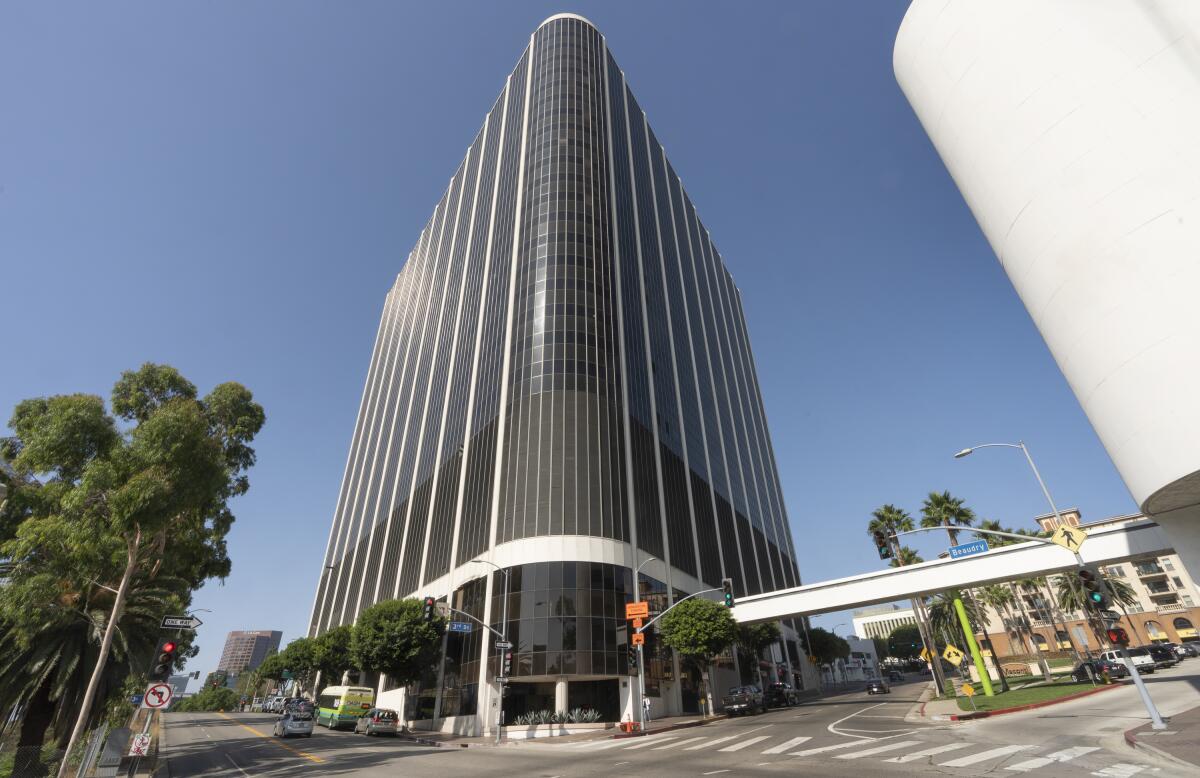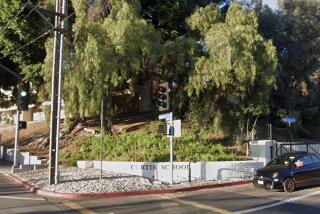LAUSD to pay $9.5 million to parents of boy who died after running laps in P.E.

L.A. Unified has reached a $9.5-million settlement with the parents of a 12-year-old boy who died after running laps at Dodson Middle School in Rancho Palos Verdes, the attorneys representing the family said Wednesday.
The boy’s parents filed a civil lawsuit against the school district on March 29, 2019, contending that employees neglected to follow procedures that may have saved their son’s life.
The parties reached the agreement before trial a few months ago, said Bruce Broillet, an attorney representing the family.
“Los Angeles Unified takes the health and safety of our students very seriously,” an LAUSD spokesperson said. “We are unable to comment on ongoing or pending litigation.”
The boy’s parents alleged that LAUSD was negligent in failing to immediately call 911 and to apply life-saving measures until paramedics arrived, including performing CPR and using an automated external defibrillator.
“They remain devastated by the loss of their son,” the attorney said. “Having a child is like having your own heart walking around outside your body, and they feel that loss every day.”
On March 6, 2018, the boy had run four laps around the school track. When he finished, he sat on the grass with two friends and lay on his back. When a teacher instructed students to drink water, the boy did not get up with everyone else. His friends told their teacher that he “did not look good,” the trial brief said.
According to the trial brief, the two P.E. teachers present saw that the boy was unconscious but breathing. Neither called 911, and neither performed CPR or applied an AED before paramedics arrived, though both were trained on how to do so.
In 2018, LAUSD officials said in a statement that the boy received immediate care from the school nurse and paramedics, and that the boy was rushed to a hospital where he was pronounced dead.
However, Broillet said that Dodson Middle School had an unusual policy of requiring staff to ask the front office to call 911, rather than calling themselves.
That resulted in a six- to eight-minute delay before 911 was called. It also prevented operators from instructing the P.E. teachers on how to treat the boy while waiting for paramedics, Broillet said.
According to the trial brief, the school nurse said she performed chest compressions on the boy at the field. The nurse said she would stop giving the compressions when she noticed his breathing change, instead of giving continuous compressions until paramedics arrived, as she was trained to.
There was also uncertainty as to whether the nurse gave CPR. The assistant principal, identified in the trial brief as Mr. Olmos, reported observing the nurse give eight compressions. One P.E. teacher said she saw the nurse give one compression. The other P.E. teacher didn’t see the nurse give the boy chest compressions.
The L.A. Fire Department said no CPR was given before its arrival.
Furthermore, the defibrillator wasn’t requested by the P.E. teachers or the school nurse, according to the trial brief. Mr. Olmos requested it nine minutes after students notified teachers of the boy’s condition, and it was not used.
According to attorneys, the nurse didn’t know the school had a defibrillator, though she was the person designated to inspect it daily.
Broillet said the boy had an undiagnosed heart condition, a congenital anomaly in a coronary artery, that was treatable with surgery. Had LAUSD followed policy and given the boy immediate care, he could have received the appropriate medical treatment, he said.
By the time paramedics arrived, the boy’s brain had been deprived of oxygen for too long, the attorney said.
“All of the delays and failures and the rule about having to call 911 to the front office instead of a teacher’s cellphone, all of those things led to this young man’s death,” Broillet said.
“It is the fondest hope of the family that this never happens to any other family in the future, and we hope and they believe that the school district is improving its training methods, so that this sort of thing never happens again,” he said.
More to Read
Sign up for Essential California
The most important California stories and recommendations in your inbox every morning.
You may occasionally receive promotional content from the Los Angeles Times.










